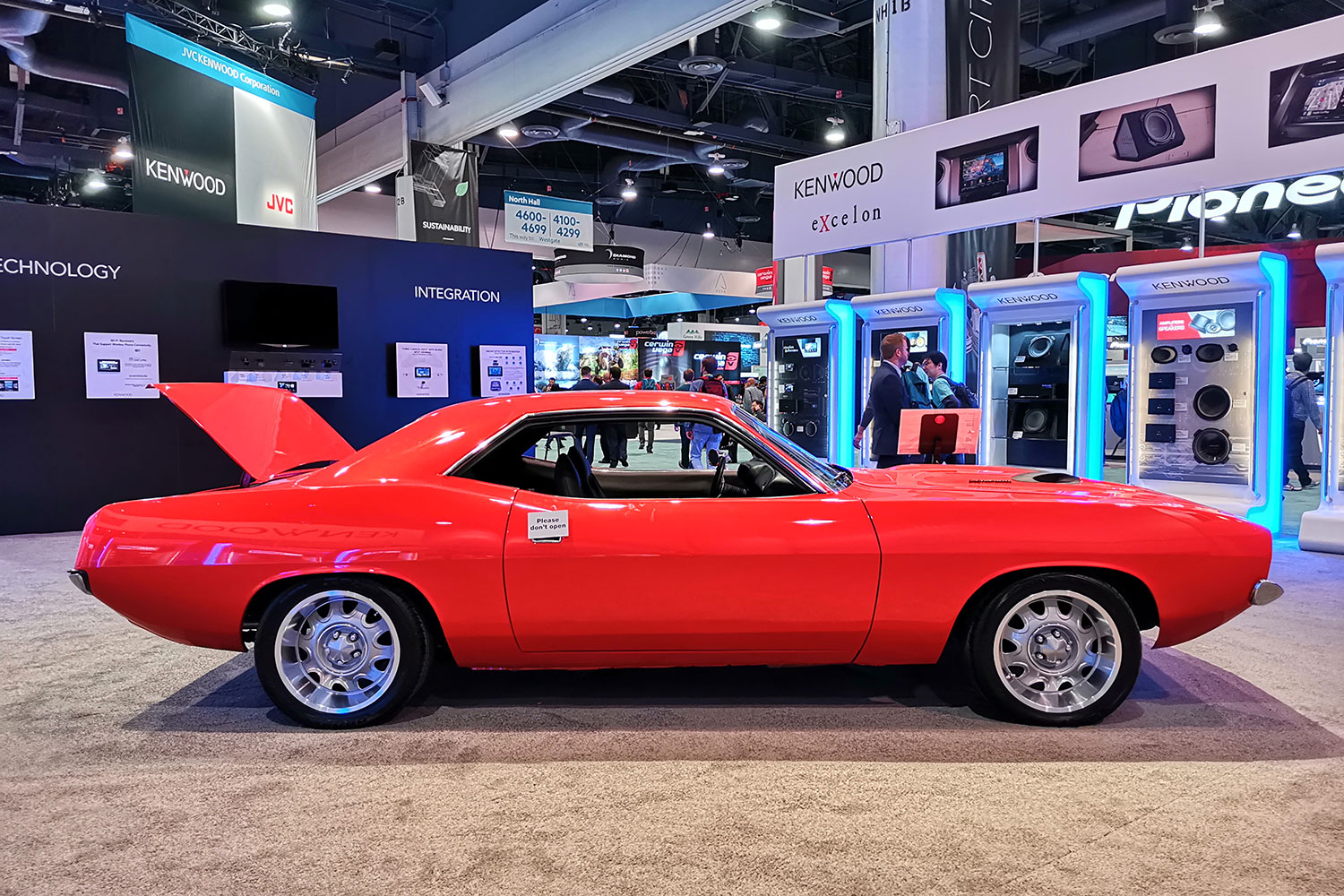
“The View 20 is the best phone Honor has made to date, combining cutting-edge tech with a swoon-worthy design.”
- Beautiful design
- Hole-punch screen is a winner
- Very powerful
- Highly capable 48-megapixel camera
- Competitive price
- Software still has drawbacks
- No water resistance
- No U.S. release yet
It has taken a while, but we’re getting closer to avoiding the visual pain of the notch and enjoying a beautiful full-screen experience on our phones. The Honor View 20 uses the company’s All View Display, which replaces the notch with a hole punch, through which the front-facing camera looks out.
The Honor View 20 is the first internationally launched phone to use such a display, and we’re happy to say that it’s a massive success, but the phone has a lot more going for it than just the special screen. In fact, we think it’s Honor’s best phone yet, and here’s why.
Editor’s note: We’ve added finalized pricing details from Honor.
Screen and design
Use the Honor View 20 for an hour, and you won’t notice the hole punch at all. It’s a marvel of design, perfectly implemented, and technically very impressive. It’s the solution to our notch hatred because it’s not obnoxious, doesn’t get in the way, and genuinely increases the screen-to-body ratio. Play games? You don’t see it, as your thumb mostly covers it up while you play. Simply, we never want to see another notch, and only want to see hole-punch screens. It’s a 10/10 raging success, and the first of two standout design features on the Honor View 20.
The second is the back of the phone. After years of trying, Honor has found a design that gives one of its phones an identity. It’s shockingly simple, really, as it’s just reflective V patterns running down the back of the device, but it’s so well implemented and realized that it never fails to catch your eye or make you smile. Honor calls it Light For Honor, a 300 nanometer, multi-layer super-micro pattern, and the V-shape on each shiny View 20 appears like it’s emerging from a pool of water.
If you thought Huawei’s twilight color or the Vivo Nex S’ rainbow reflections looked good, the View 20 is a step beyond. It’s fantastic, and if it’s bettered in the near future we’d be surprised. You can see the phantom blue model here, and there’s also an equally stunning red, and a more subdued black version. Trust us, you’ll want the blue or red one.
We never want to see another notch, and only want to see hole punch screens.
The rest of the phone is similarly impressive. It’s not overly slim or light, at 8.1mm and 180 grams, but it’s perfectly manageable and easily fits in a pocket. The fingerprint sensor is in the most convenient and reliable spot — the back, top-center — there’s a USB Type-C for charging, and a 3.5mm headphone socket too. What more could you ask for?
It’s not perfect though. The hole punch camera still takes away some of the notification line, although there’s a lot more space than with a notch, and it can be distracting when watching full screen video.
The 6.4-inch, 2,310 x 1,080 pixel resolution is good, if not outstanding. There’s plenty of user adjustment though, from the temperature to normal and vivid viewing modes, and it does get suitably bright. However, when compared to the OnePlus 6T it’s slightly lacking detail, where the OLED panel’s crisp contrast and solid colors make it look better, especially at varied viewing angles.
Addictive camera
It’s a single-lens camera on the back of the Honor View 20, but a very special one. It’s the Sony IMX586 sensor, which has 48 megapixels and a f/1.8 aperture, joined by a 3D Time-of-Flight (TOF) sensor rather than a secondary lens. Under Settings you can select 12 megapixel shots, 48 megapixel shots, or 48 megapixels with Honor’s A.I. Ultra Clarity mode, designed for photographing scenes and still objects in daylight.
For night and low-light shots, Huawei’s Night mode is present, and the 48 megapixel sensor uses 4-into-1 pixel binning and artificial intelligence-driven stabilization (AIS) to increase brightness and quality, and reduce noise.
That 48 megapixel count is very tempting. Photos take up between 8MB and 12MB of storage space each time, so at least four-to-six times that of a regular 12 megapixel picture. To see whether it’s worth the extra space, it’s best to view the images on a monitor. On the phone’s screen the differences are minimal, and when you do spot some, it’s difficult to say if it’s better or worse than the others. That said, the 48-megapixel images are sharper than a bag of nails, and the more natural color management is often spectacular.
The V-shape on each shiny View 20 appears like it’s emerging from a pool of water.
You can zoom right in without losing much quality too. If you edit on a computer, rather than on your phone — the View 20 can also shoot RAW files in Pro manual mode — there is a lot more to work with, and we expect photography fans to be able to get plenty of creative enjoyment out of the 48-megapixel camera here.
To illustrate the differences, or potentially the lack-of, we took four photos of the Bellagio Hotel in Las Vegas. One in 12-megapixel mode, in 48 megapixel mode, in 48 megapixel Ultra Clarity mode, and in Night mode because it was after dark. Night mode’s sky is the least black, but the environment takes on the most golden hue, while the others are very similar. The Ultra Clarity photo has an ever-so-slightly blacker sky, but not by much. It’s likely that in the right environment, with the right conditions, Ultra Clarity will be the best mode; but until you’re familiar enough to recognize this, you’ll likely have to take a photo with each setting to make sure you don’t miss out.
Honor’s edge detection for its Aperture mode — now strangely hidden under the More menu, rather than the main screen — is still excellent, as is its Portrait mode. Images taken in low light are better almost without Night mode, with the 48-megapixel mode pulling in plenty of ambient light. Daytime images are good, but didn’t really make us say “wow” very often, not in the same way as the Huawei Mate 20 Pro, and the Google Pixel 3 can. However, it’s not far away.

We do think it will benefit from some software tweaks from Honor, as in some cases we noticed some odd haloing around some subjects in the dark. After some attention, there’s a good chance the View 20 could challenge the Pixel and the Mate 20 Pro on occasion. This is a phone that costs around half of both those great phones, which makes it especially impressive.
Selfies are taken care of by the 25-megapixel hole-punch camera, and the software has lighting effects, a beauty mode, and artificial intelligence too. The results are good, but only when all the extraneous effects have been switched off. They’re just too unnatural with them on, and we’d end up using a lot of filters to make them more acceptable. We liked them without any enhancements, using only the A.I. mode. The off-center angle of the lens didn’t worry us, and it works really well in indoor lighting too.
Taking pictures with the Honor View 20 is addictive. You get the impression it has more ability than you have talent, and so you try to do better each time, and look for more challenging opportunities. We like that quality a lot, and have loved some of the pictures we’ve taken so far. We’re hoping for a few small software tweaks to really help bring out the new sensor’s best though.
Performance and software
Honor is part of the Huawei family, and so the Honor View 20 uses the Kirin 980 processor with either 6GB or 8GB of RAM, and has 128GB or 256GB of internal storage space. Our review model has an 8GB/256GB configuration and runs Android 9.0.1 with the January 2019 security patch installed, and Honor’s Magic UI 2.0 over the top. This very, very closely resembles Huawei’s EMUI 9, but Honor has told us the two will gradually go in their own directions in the future.
We ran some benchmark tests to establish the Honor View 20’s performance:
- AnTuTu 3DBench: 277,547
- Geekbench 4 CPU: 3,283 single-core; 9663 multi-core
- 3DMark Sling Shot Extreme: 4,349 Vulkan
Comparing the View 20 to the Huawei Mate 20 Pro and the Mate 20, which also use the Kirin 980, the Honor phone actually returns slightly higher performance figures. It also beats out the OnePlus 6T and the Pixel 3, apart from in AntTuTu. However, it’s not by much, and benchmarks are only a guide to overall ability. Just consider the View 20 a powerful smartphone.
What’s all this about Magic UI 2.0? Isn’t it just EMUI with a different name? Currently yes, it’s EMUI with a different name, and when we spoke to Honor about it, we were told it will become a different beast in the future, with more “youth-focused” features, whatever that means. For now, if you like EMUI, you will like Magic UI. For those that don’t, we recommend having patience and tweaking the many settings to make it feel more like home. No, it’ll never be like Android on the Pixel, but it’s faster and smoother than it ever was before.
Annoyances still prevail. The hateful SwiftKey is still the standard keyboard, the notification support isn’t as good as on the Pixel, and we miss little features like tapping the date on the Pixel and jumping to the calendar. The keyboard is uncomfortable to type on for long periods of time, due to how close it is to the bottom of the device.
Honor has also slimmed down the shortcuts in the notification shade as standard, restricting it to five. You can add more, but it has to be done manually. There’s no way to edit the camera options in the camera app either, with Aperture being relegated to the More section now, despite us using it more than the Portrait option. That said, animations have been smoothed out, helpful notification dots sit over app icons, you can have an app drawer, and the gesture control system is really good.
Gaming on the View 20 is awesome. Not only does the phone have plenty of power, but the full-screen experience really does make a difference to gameplay. There’s no notch to notice, and you quickly become immersed in the game itself, much like you do on a Nintendo Switch or PlayStation Vita. We played a lot of Asphalt 9: Airborne, and saw no stutters or frame rate drops. The Honor View 20 has Honor’s GPU Turbo gaming enhancements, which while boosting only certain games to the maximum, does help other games run smoothly too. It shows, and the View 20 is a great gaming device, aside from the slightly disappointing speaker.
Battery and audio
A solitary speaker is at the bottom of the phone, and it’s at best average. There’s a 3.5mm headphone socket though, which will please many people. It’s good news on the Bluetooth side too, as the Honor View 20 has AptX HD for the best wireless sound quality (with compatible headphones). We have been listening with the Bowers & Wilkins PX headphones, which are dreamy anyway, and sound good with the View 20.
]However, there isn’t as much volume as we were expecting, and with Spotify we had to crank it up to maximum to be drowned in sound, and it was by no means ear splitting. We’d describe the View 20 as giving a neutral, natural sound that puts less emphasis on the bass as some may like. There’s not much volume out of the earpiece on calls either, mainly due to its size and placement at the very top of the screen edge.

We’re very pleased to see a 4,000mAh battery inside the Honor View 20, and it really makes a big difference. The Kirin 980 is great at managing power, the screen isn’t ridiculously high resolution, and Huawei has baked plenty of battery saving measures into EMUI, which we assume have been replicated in Magic UI 2.0. The result? Two days above average use is easily possible. We’ve also been testing it connected to a smartwatch, and this has not overly affected the strong battery life. A definite plus, along with the fast charging system too.
Price, warranty, and availability
The Honor View 20 is available to buy from January 22 for 500 British pounds ($650) if you select the 6GB/128GB model, and 580 pounds ($755) if you go for the top 8GB/256GB version. A special Moschino version costs the same as the 8GB/256GB model and comes with a special case, wallpapers, and box. It’s available directly through Honor’s website, or from various retailers including Argos, Carphone Warehouse, Amazon, and others. You can also purchase the phone with a contract through the O2 network.
In Europe the price is 570 euros for the 6GB/128GB version in black or blue, while the black, blue, or red 8GB/256GB version is 650 euros, the same as the Moschino version. Buy an Honor phone in the U.K. and you get a two-year warranty, and six-months on the battery. It covers the usual manufacturing defects, but not wear and tear or abuse.
No release for the U.S. has been announced yet, but that’s not to say one won’t come in the future.
Our Take
Just a glance at the beautiful Honor View 20 will see you swoon, but it’s the camera and screen tech that’ll convince you to buy, and it’ll take less cash than you expect to secure one too.
Are there any alternatives?
The big challenger to the Honor View 20 is the $550 OnePlus 6T, which is joined by other strong performers with value-based price tags like the $350 Nokia 7.1, the 400 British pound Honor 10, and in the U.K., the 550 British pound Samsung Galaxy A9 (2018). For U.S. buyers, the $450 Motorola Moto Z3 Play should be considered, but otherwise, to come close to the View 20’s ability you’ll have to look at the $800 Google Pixel 3, the $650 LG G7 ThinQ (although this is getting old), or the $750 Apple iPhone XR.
What about the Huawei Mate 20 Pro or Mate 20? Both are excellent smartphones, but both are also a lot more expensive than the Honor View 20 — almost double in the Mate 20 Pro’s case. We’d choose the Pro over the Mate 20, but it’ll be down to your wallet size and desire for the Leica-tuned camera to dictate if it’s worth the extra money.
How long will it last?
The Honor View 20 has a very modern design, and the first widely available hole-punch screen, so it’s going to look fresh and exciting for some time. It’s not a rugged phone, and has no water resistance, so you’ll have to be careful. There is a transparent silicone case in the box, which we recommend using. Two years use out of the Honor View 20 should be considered the minimum.
Should you buy it?
Yes, definitely. There are very few downsides on what we think is Honor’s best phone yet, bringing together a super-modern design, very cool tech, and a creatively exciting camera, all for a tempting price.





















